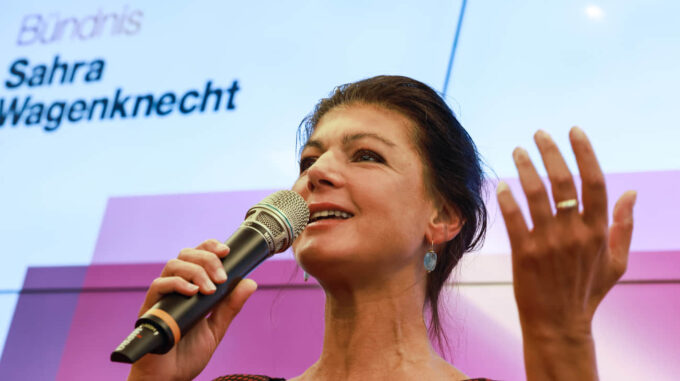On the eve of Victory Day, May 9, a delegation of European deputies will travel to Moscow, which has sparked considerable discussion and controversial assessments

While traditionally, celebrations in Russia on this date symbolize honoring the victory in the Great Patriotic War, this year's event has acquired a special context due to the European Parliament guests who plan to visit Moscow even amid tensions and conflicts unfolding because of Russian aggression against Ukraine. According to information received from international sources, among the planned participants from the EU are small groups of Members of the European Parliament, including two German representatives who are members of the so-called Alliance of Sara Wagenknecht. These are Rute Fürmeinich and Michael von der Schulenburg, who have stated their intention to join the official festivities in Moscow commemorating May 9. They are joined by three more European politicians from the Czech Republic, Slovakia, and Cyprus. Sources indicate that their goal is to meet with representatives of the Russian State Duma and other local political and cultural figures. They emphasize that this visit carries symbolic significance, particularly aimed at overcoming the growing spiral of confrontation and tension within the European space. The group also plans to visit Kyiv, having already contacted the Ukrainian embassy, viewing this trip as an opportunity to engage in dialogue and explore ways to de-escalate tensions. However, some critics consider this step highly controversial and even provocative given the current events and international sanctions against Russia. Regarding the personal position of one of the participants — Sara Wagenknecht — she has expressed her views on such a trip through the lens of her personal convictions and historical perspective. Wagenknecht stressed that she does not see any scandal in this and avoided criticism concerning potential political intentions. She assured that her colleagues — Fürmeinich and von der Schulenburg — intend to lay flowers at the Unknown Soldier monument in Moscow, which precedes the 80th anniversary of the liberation of Russian territories from Nazi occupation. According to the deputy, these actions will not be related to participation in military parades or other state events. It is worth noting that as early as February this year, Wagenknecht faced criticism and was compelled to respond to questions regarding her reactions to the events in Ukraine and her attitude toward the Ukrainian state. She admitted that she does not feel joy about Ukraine's continued existence as an independent country and expressed her views on Europe’s energy dependence on Russia, emphasizing that without cheap Russian energy resources, German and European industry “has no chance” of survival and competitiveness. The events surrounding the upcoming visit of MEPs to Moscow, at a time when the EU and Ukraine are intensifying efforts to stop Russian aggression, cast doubt on their integrity and fidelity to the values of European solidarity. Moreover, they raise questions about whether such diplomatic activities are merely a cover for more shadowy political deals and whether they will contribute to the search for peace or simply reinforce Vladimir Putin’s regime. Overall, these events once again highlight the complex and multi-dimensional political arena of Europe, where questions of morality and political expediency increasingly intersect with the personal interests and strategic goals of individual actors. Simultaneously, the Ukrainian community remains particularly sensitive to any manifestations of complicity in visits to the country-aggressor. Whether this trip will bring new arguments to public debate or become yet another story of disagreements among European politicians will only be seen with time.

